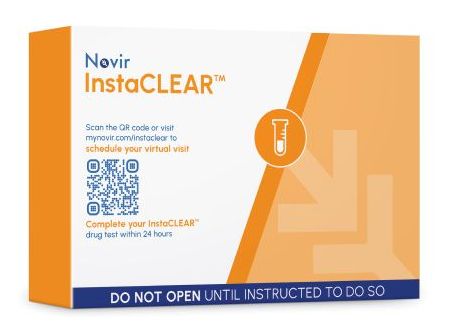In the midst of a global pandemic with confusing and conflicting information about how the coronavirus is transmitted, many breath alcohol technicians are uncomfortable conducting breath tests.
Makes sense.
Even with precautions, including using a private area outdoors, there is an individual exhaling strongly in close proximity to the BAT (Breath Alcohol Technician). The BAT holds the device, per DOT regulation, so maintaining a six foot distance is not possible. And, frankly, six feet is not very far when someone is blowing into an EBT (Evidential Breath Testing device).
Ethyl Glucuronide (EtG)
For court, custody and other non-workplace testing, alcohol can be detected in urine or hair. An EtG alcohol test is used for zero tolerance situations and not used for workplace testing.
Saliva Testing for Alcohol
An often-overlooked part of 49 CFR Part 40, the US Department of Transportation’s document that describes required procedures for conducting workplace drug and alcohol testing, is saliva alcohol testing. Saliva testing is an option that drug and alcohol testing companies really should consider.
Section 40.245 describes the saliva testing procedure in detail.
Advantages of saliva alcohol testing:
- No need for an expensive EBT
- Easy to administer
- Inexpensive test kits
- No exhaled breath
- Convenient if a collection site has only one EBT and it is off site, or in use
- Good backup if an EBT has a technical problem
Disadvantages of saliva alcohol testing:
There is really only one. Saliva alcohol testing can be used for screening only. If you get a non-negative result, it must be confirmed with an Evidential Breath Test device.
And there is a time limit.
The confirmation test must be completed after 15 minutes, but before 30 minutes have elapsed, so you need to have one close by. If you can’t confirm a positive with an EBT, you better be prepared to document why.
The vast majority of alcohol tests are negative, so it would be rare to have a problem.
Saliva Test Technician Training
This is important, and often misunderstood by certified BATs. There is standard training every Breath Alcohol Technician and every Screening Test Technician (STT) must complete. Most of the training is the same. But every BAT must be certified, and complete mock collections on the device s/he will be using.
Each model of an EBT is a different device, and each saliva test kit is a different device. So even an experienced BAT must complete mock collections on the saliva test kit s/he will be using.
Resources
DOT-compliant saliva alcohol test kits
STT Training – web
STT Training – live (Must be an NDASA member)


